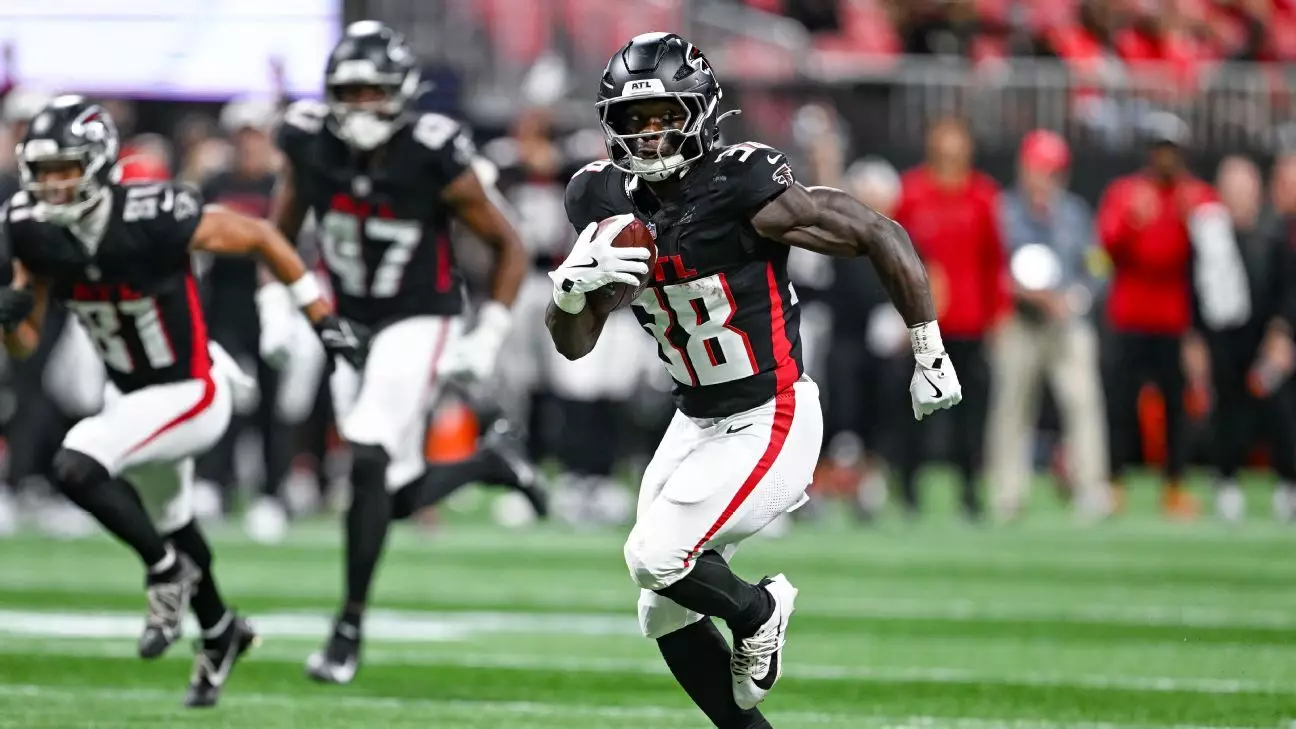In the high-pressure world of professional football, moments of crisis often reveal the true character of athletes—not just their physical prowess, but their mental and emotional fortitude. The recent incident involving Atlanta Falcons rookie Nathan Carter exemplifies this dynamic vividly. When Carter collided with Morice Norris during a preseason game, the aftermath was far more than a mere injury; it was a test of resilience, faith, and perspective. Unlike many young players who might be overwhelmed by fear or guilt, Carter demonstrated remarkable maturity by focusing on Norris’s recovery and his own spiritual grounding. His ability to compartmentalize the injury and channel it into a positive performance underscores a profound lesson: adversity, when approached with clarity and faith, can catalyze growth and excellence.
This incident also spotlights the importance of mental resilience in sports. It’s easy for athletes to become tentative after a traumatic event, but Carter’s decision to see the injury through a lens of empathy and faith empowered him to return stronger. His performance—rushing for 63 yards, including an electrifying 43-yard touchdown—was not just a display of talent but a testament to the impact of a resilient mindset. This resilience, rooted in personal faith and a commitment to upward mobility, allowed him to view his role not merely as a player seeking fame, but as an individual navigating life’s unpredictable challenges with purpose.
Faith as a Foundation for Athletic Success
Carter’s emphasis on his spiritual beliefs offers a compelling narrative about the role of faith in high-performance sports. His words reflect a conscious decision to prioritize his relationship with a higher power over fleeting validation from crowds or critics. He mentions performing “for the Lord,” indicating that his motivations go beyond personal achievement; they are anchored in a deeply held conviction that lends strength amid chaos. This correlation between faith and performance is increasingly evident in modern sports, where athletes often find solace and clarity through spirituality—particularly when facing setbacks or uncertainties.
This perspective is revolutionary in a sport that highly values physicality and competition. Carter’s reliance on faith provides an emotional anchor that sustains him through both triumphs and Trials. His ability to maintain composure after witnessing a teammate’s serious injury, and then channel that experience into a standout game, highlights how spiritual values can serve as a powerful catalyst for resilience. It raises an important question: could more athletes embrace this holistic approach—where mental health, faith, and physical performance intertwine—to navigate the pressures of professional sports?
The Significance of Team Support and Camaraderie
In moments of crisis, the collective strength of a team becomes evident. Carter’s immediate support from Falcons coach Raheem Morris, who comforted him post-play, exemplifies how empathy and leadership cultivate resilience. Morris’s comment that the team is “very proud” of Carter indicates a culture that values character as much as athletic skill. It is this environment—where players rally around one another, share in each other’s victories and struggles—that transforms a roster from just a group of individuals into a cohesive, resilient unit.
Furthermore, Carter’s connection with his teammates extends beyond the field. His gesture of reaching out to Norris, who is recuperating from his injury, demonstrates how sports foster relationships rooted in empathy and understanding. This camaraderie not only enhances team dynamics but also creates a support system that helps athletes face their personal and professional challenges. The unity displayed both on and off the field proves that strength and resilience are best cultivated through genuine community and shared purpose.
Breaking Barriers Through Determination and Preparation
Despite being an undrafted free agent, Carter’s impressive athletic profile—highlighted by a 4.4 40-yard dash and remarkable jumping ability—speaks volumes about his dedication and physical readiness. His athletic metrics far exceeded expectations, revealing that talent and hard work can forge pathways to success, even when the draft does not favor you. His performance in the preseason game, especially after a demanding week of physical and emotional stress, underscores that preparation and perseverance can defy the odds.
Carter’s journey is emblematic of a broader truth: talent alone isn’t enough; resilience, continuous effort, and mental toughness are critical drivers of success. His fierce running style combined with stellar measurables shows he possesses the ingredients necessary to earn a spot on the roster. And in an era where opportunities are often scarce for undrafted players, Carter demonstrates that with relentless determination, setbacks are only stepping stones toward achievement.
The Future of a Rising Star: Hope and Opportunity
Carter’s breakout night hints at a promising future filled with potential and possibility. Being among the top performers in Falcons camp, especially after a harrowing incident, signals that he has cultivated not only physical skills but also an indomitable spirit. His acknowledgment of the support from teammates and coaches underscores a maturity that will serve him well in the demanding landscape of professional football.
Ultimately, Carter’s story reminds us that sports are more than competition; they are a reflection of life’s larger battles—overcoming fear, maintaining faith, and relentlessly pursuing growth despite setbacks. His journey exemplifies that resilience and conviction often carry a player further than pure talent alone. For aspiring athletes and fans alike, his evolution is a powerful affirmation: when faced with adversity, the true measure of a person’s strength is their ability to rise, grounded in purpose and driven by an unwavering belief in their potential.

